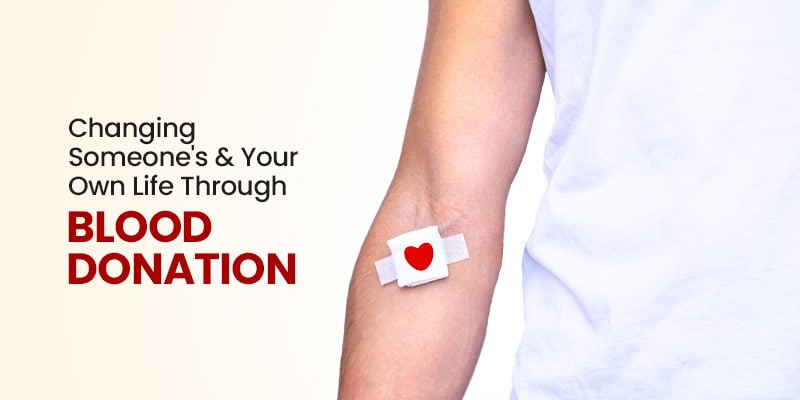- Open 24/7
- psh@paruluniversity.ac.in
- Emergency Contact - 9016668241/9016668136/18008899774

Did you know that The World Health Organization (WHO) reports that approximately 118.54 million blood donations are collected worldwide?
Blood donation is a powerful act of kindness that can transform lives—not just for those who receive the blood but also for those who give it. We often underestimate the profound impact of donating a pint of blood. It’s more than a medical necessity; it’s a gesture of humanity that profoundly bonds us.
This blog will explore the importance of blood donation, its health benefits, and the personal growth accompanying this selfless ac
Donating blood is more than just a selfless act of community service; it also offers several health benefits of blood donation to the donor. Here’s how:
Every blood donor undergoes a routine health screening before donating. This quick check-up can reveal important health information, such as blood pressure, hemoglobin levels, and potential issues like anemia or high blood pressure. Catching these conditions early can lead to timely medical intervention, potentially preventing more serious health problems down the line.
Regular blood donation can help maintain healthy iron levels in the body. High iron levels have been associated with an increased risk of heart disease. By donating blood, individuals can lower their iron stores, reducing the risk of heart attacks and strokes. This benefit is especially significant for those with hemochromatosis, which causes excessive iron buildup in the body.
Donating blood can provide a deep sense of satisfaction and fulfillment. Knowing that your donation can save lives and help those in need fosters a profound sense of purpose and emotional well-being. Many donors find that this altruistic act contributes to their overall happiness and mental health.
Despite the critical need for blood donors, many people hesitate to donate due to prevalent misconceptions. Let’s clear up some of the common myths:
Reality: The pain involved in donating blood is minimal and fleeting, similar to a quick pinch or a mild sting when the needle is inserted. Most donors report that the anticipation is worse than the actual sensation, and any discomfort dissipates quickly.
Reality:The entire blood donation process, from registration and a quick health check-up to the actual donation and brief recovery period, typically takes about an hour. The donation itself only takes about 10-15 minutes. Many find it a small time commitment for such a significant impact.
Reality: The safety protocols in place for blood donation are rigorous. New, sterile needles and equipment are used for each donor, ensuring there is no risk of contracting diseases. The process is extremely safe and highly regulated to protect donors’ health.
Reality: The human body holds more than enough blood to allow for safe donation. Adults have about 10-12 pints of blood, and only one pint is taken during a donation. The body quickly replenishes this small amount, usually within 24-48 hours.
Reality: As long as you are healthy and meet the basic eligibility requirements, age is not typically a barrier to blood donation. Many blood banks accept donations from people well into their 70s and beyond.
If you are considering blood donation, here are some tips to ensure a safe and comfortable experience:
Blood donation is a vital part of healthcare systems around the world. Each of us has the power to contribute to this essential service. Whether you are a first-time donor or someone who has donated regularly, remember that your contribution is invaluable.
If you’re ready to donate, contact your local blood bank or visit a community blood drive. Most countries have national blood services to guide you through becoming a donor. For those who have donated before, consider becoming a regular donor to help maintain a stable blood supply.
The importance of blood donation cannot be overstated. It is a profound gesture of goodwill that saves lives and enhances the donor’s emotional and physical health. By understanding the impact of our contributions and overcoming misconceptions, we can engage more people in this vital activity. Remember, each time you donate blood, you’re not just changing someone else’s life—you’re changing your own, too.
Written by Parul Sevashram Hospital | 10 June 2024

